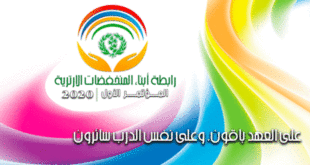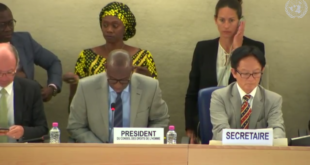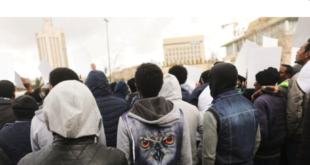By Paul Lungen,
From 2009 to the end of September 2016, 1,856 Eritreans made refugee claims in Canada, but in recent months, a small number of them made those claims after travelling here from Israel.
JIAS (Jewish Immigrant Aid Services) Toronto has helped facilitate the immigration of a small number of the refugees, who are coming under private sponsorships. Lia Kisel, language and settlement director at JIAS, said that as a sponsorship agreement holder, JIAS has received government approval to sponsor refugees and provide settlement services once they are in Canada.
“We have submitted applications for a couple of Eritrean families currently in Israel, as well as for other Eritrean and Ethiopian families not in Israel,” she said. “These families have been referred to our agency by NGOs in Canada and overseas.”
READ: JIAS CAN’T HELP REFUGEES UNLESS CANADA ISSUES EMERGENCY DIRECTIVE
Kisel said the Eritreans are considered refugees from Eritrea, not Israel, as they retain refugee status, even though they found safety in Israel. “Refugees retain their status when a durable solution, such as being able to successfully settle and integrate, is not found in their countries of residence.”
Daniel Schild was on a recent El Al flight from Israel to Canada with a sizable group of Eritreans on board. He struck up a conversation with one family.
“The father was dressed in his best, a sports jacket with unfortunately a bad tear in the seam and a red bow tie. The mother was seated one row back. Her hair was beautifully braided and their toddler daughter – clearly born in Israel – also had cute braids. The father told me he has lived in Israel for seven years and communicated with the little girl exclusively in Hebrew. He told me that they began their application to come to Canada 18 months ago and suggested that they had people he knew in Canada but was very vague as to whom,” Schild said.
“The family was destined for Edmonton, and [another family] told me they were going to Regina. They had a precocious toddler son. They called him what sounded like Moshe, but spoke to him in their native tongue,” he added.
“I told them that except for the weather, Canada was the best country in the world, and I definitely felt a feeling of happiness mixed with uncertainty coming from them.”
According to Canadian government statistics, 383 Eritreans made refugee claims from January to September 2016, up from 290 in all of 2015.
READ: HUNDREDS OF JEWS FORM ‘RINGS OF PEACE’ AT TORONTO MOSQUES
Eritrea, located in east Africa, is an oppressive dictatorship that has imposed indefinite military service, denies basic freedom and which routinely tortures dissidents. Thousands of Eritreans have fled the country, and many have tried to make their way to Europe through Libya. Over the years, some reached Israel via Sudan and Egypt. In Sinai, they risked kidnapping by Bedouins who held them for ransom, routinely torturing and raping their victims.
In 2013, Israel completed a 140-mile- long fence on its Sinai border to prevent what the government termed “infiltrators” from entering the country.
According to Israeli data, as of June 2016, there were 42,147 asylum-seekers in the country, including 31,000 from Eritrea and more than 8,000 from Sudan. Israel has granted them “temporary group protection.” Although they’re in Israel legally, only four out of 2,408 applicants were granted refugee status, or 0.4 per cent. In Canada in 2016, the acceptance rate was 82 per cent.
Eritreans have become a polarizing issue in Israel. Some argue that given Jews’ experience as refugees, Israel should be more welcoming. Others say some could pose a security risk and they contribute to crime, and without entry limits, they’d pose a demographic challenge.
They’ve been offered $3,500 and a ticket to a third country that will accept them. More than 6,000 Eritreans have left Israel, most of them to third countries like Uganda and Rwanda, with which Israel has secret agreements. However, some reports indicate they’re not safe in those countries.
A spokesperson for Immigration, Refugees and Citizenship Canada said Canada and Israel have no specific agreements to resettle refugees from Eritrea via Israel. In 2016, almost all those Canada resettled fell under the private sponsorship program.
–
Source: CJN
 ELL Eritrean Lowland League
ELL Eritrean Lowland League





wam errtrian Refuge I leve in om grgor camp in soudan lhave tow cheldren lrecust refuge in kanada